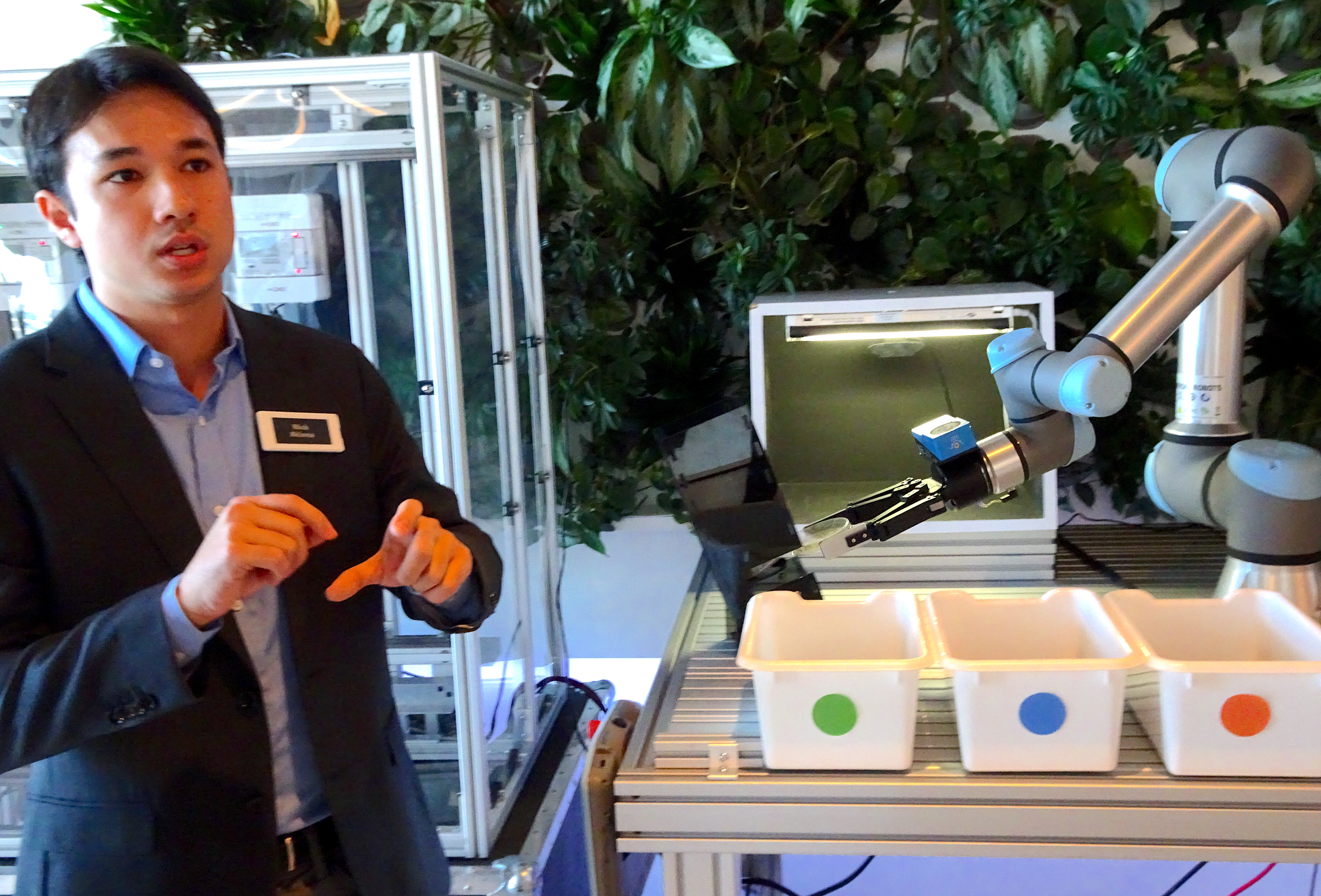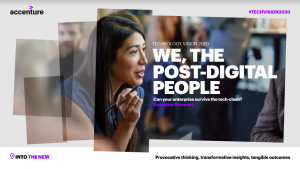 EMERGING TECH
EMERGING TECH
 EMERGING TECH
EMERGING TECH
 EMERGING TECH
EMERGING TECH
As a new “post-digital” era dawns in which every business is striving to modernize itself, enterprises will need to adopt a more human-centered approach that strikes a better balance between business value and the “values and expectations” of their customers and employees.
That’s according to a new report released early Wednesday by information technology consultancy giant Accenture Plc. “We, The Post-Digital People: Can your enterprise survive the ‘tech-clash?” notes that many organizations have gone fully digital yet are still struggling to meet the needs of their customers, even though technology has become ubiquitous in people’s lives.
Accenture focuses on what it calls a “tech clash” — a play on a tech backlash that it notes hasn’t really happened, since people are hardly turning away from new technologies or the companies that create them. What it sees, however, is a world in which business and technology models are becoming incongruous with people’s needs and expectations.
“Technology is actually changing us,” Michael Biltz, managing director for Accenture Technology Vision, said during a press briefing Tuesday. “People aren’t pushing the technology back. But companies need to match the values of their customers.”
That hasn’t happened yet, added Paul Daugherty, Accenture’s chief technology and innovation officer. “Dazzled by the promise of technology, many organizations created digital products and services just because they could, without fully considering the human, organizational and societal consequences. We must shift our mindset from ‘just because’ to ‘trust because.’”
But the “tech clash” can easily be resolved, according to Accenture, as long as companies recognize and adjust to five key trends that have the potential to deliver “new forms of business value” based on stronger relationships between brands and individuals.
The most important of those trends, “The I in Experience,” relates to the need to create more personalized experiences that amplify an individual’s agency and choice. The idea is that a more personalized experience that can eventually evolve into a collaboration will transform passive audiences into more active ones.
First, Accenture says, organizations must design personalized experiences to empower people. “We’ve viewed it too often as optimizing channels and click-through,” said Daugherty. “We need to shift the bar to delivering an experience to customers.”
At the same time, Accenture contends, artificial intelligence needs to become an additive contributor to the way people work, not just a tool for automation. Currently, only some 37% of organizations report using inclusive design or human-centric design principles to support human-machine collaboration, Accenture said.
“AI is going to eliminate some opportunities,” Daugherty conceded. “But it can make humans more effective, and that’s the broader opportunity.”
Another important trend is the “Dilemma of Smart Things” in which businesses seek to introduce new types of connected products driven by people’s digital experiences. Addressing this will require a lot of work, with almost three-quarters of executives in the Accenture survey saying their organizations connected products and services will receive significantly more updates in the next three years.
In essence, these services and connected products are redefining ownership, Biltz noted. “You fundamentally change the notion of ownership the minute you add intelligences to devices,” he said. “We’ve suddenly created this joint-ownership model. The consumer has physical ownership, but digital ownership is shared.” That loads a lot more post-sales responsibility on enterprises.
 The next decade will also be one in which we see the emergence of “Robots in the Wild,” driven by the adoption of 5G networking. To succeed in business, companies will need to embrace robotics in almost every area, but that will pose some challenges, since some 45% of execs say their employees will struggle to figure out the best way to work with robots. Already, many more “cobots” or collaborative robots are being introduced, Daugherty pointed out.
The next decade will also be one in which we see the emergence of “Robots in the Wild,” driven by the adoption of 5G networking. To succeed in business, companies will need to embrace robotics in almost every area, but that will pose some challenges, since some 45% of execs say their employees will struggle to figure out the best way to work with robots. Already, many more “cobots” or collaborative robots are being introduced, Daugherty pointed out.
Finally, successful organizations will likely be defined by their ability to establish an “Innovation DNA” that enables them to take advantage of the promise of new technologies such as AI, distributed ledgers, extended reality and quantum computing, Accenture said.
“Three-quarters of executives believe that the stakes for innovation have never been higher, so getting it ‘right’ will require new ways of innovating with ecosystem partners and third-party organizations,” the Accenture report said.
With reporting from Robert Hof
THANK YOU